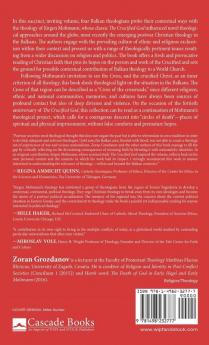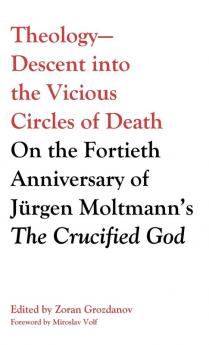English
Hardback
₹3168
₹3535
10.38% OFF
(All inclusive*)
Delivery Options
Please enter pincode to check delivery time.
*COD & Shipping Charges may apply on certain items.
Review final details at checkout.
Looking to place a bulk order? SUBMIT DETAILS
About The Book
Description
Author(s)
In this succinct inviting volume four Balkan theologians probe their contextual ways with the theology of Jurgen Moltmann whose classic The Crucified God influenced novel theological approaches around the globe most recently the emerging postwar Christian theology in the Balkans. The authors engage with the prevailing culture of ethnic and religious exclusivism within their context and present us with a range of theologically pertinent issues resulting from a wider discussion on religion and politics. The book offers a fresh and provocative reading of Christian faith that pins its hopes on the person and work of the Crucified and sets the ground for possible contextual contribution of Balkan theology to a World Church. Following Moltmanns invitation to see the Cross and the crucified Christ as an inner criterion of all theology this book sheds theological light on the situation in the Balkans. The Cross of that region can be described as a Cross of the crossroads since different religions ethnic and national communities memories and cultures have always been sources of profound contact but also of deep division and violence. On the occasion of the fortieth anniversary of The Crucified God this collection can be read as a continuation of Moltmanns theological project which calls for a courageous descent into circles of death--places of spiritual and physical imprisonment without false comforts and premature hopes. Post war societies need theological thought that does not negate the past but is able to reformulate its own tradition in order to develop adequate and relevant theologies. Until now the Balkan area flooded with blood was not able to create a theology out of experiences of war and vicious nationalisms. Zoran Grozdanov and the other authors of this book manage to fill the gap by critically reflecting on the devastating consequences of misusing faith by blending it with nationalistic identities. In an original contribution Jurgen Moltmann whose seminal study on The Crucified God inspired the volume reflects back on his own personal context and the contexts in which his work had its impact. I strongly recommend this work to anyone interested in understanding the relevance of theology--within and beyond the Balkan countries. --Regina Ammicht Quinn Catholic theologian; Professor of Ethics; Director of the Center for Ethics in the Sciences and Humanities The University of Tuebingen Germany Jurgen Moltmanns theology has motivated a group of theologians from the region of former Yugoslavia to develop a contextual continental political theology. They urge Christian theology to break away from its own ideologies and become the motor of a post-war political socialization. The memory of the regional war the concern about the current political situation in Eastern Europe and the commitment to theology make the book a painful yet indispensable reading for anyone interested in political theology. --Hille Haker Richard McCormick Endowed Chair of Catholic Moral Theology President of Societas Ethica Loyola University Chicago LSC A contribution in its own right to living in the multiple conflicts of today in a globalized world marked by contending particular universalisms that often turn violent. --Miroslav Volf Henry B. Wright Professor of Theology Founder and Director of the Yale Center for Faith and Culture Zoran Grozdanov is a lecturer at the Faculty of Protestant Theology Matthias Flacius Illyricus University of Zagreb Croatia. He is coeditor of Religion and Identity in Post-Conflict Societies (Concilium 1 [2015]) and Harsh word: The Death of God in Early Hegel and Early Moltmann (2016).
Delivery Options
Please enter pincode to check delivery time.
*COD & Shipping Charges may apply on certain items.
Review final details at checkout.
Details
ISBN 13
9781498232777
Publication Date
-15-12-2016
Pages
-164
Weight
-277 grams
Dimensions
-140x216x12.7 mm











